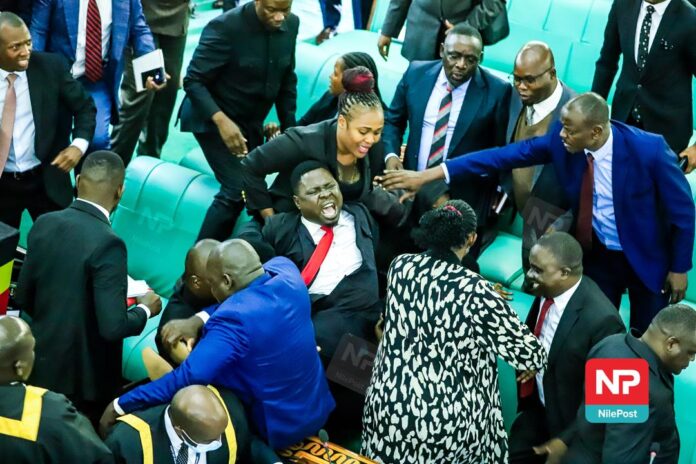Kampala, Uganda – The Ugandan Parliament is grappling with an accountability crisis as multiple scandals unfold, prompting MPs to question whether their institution can effectively hold the executive accountable. This scrutiny comes amidst a series of corruption allegations that have tarnished the reputation of the legislative body.
One major scandal involved a leaked service award scheme where four members of the Parliamentary Commission allegedly distributed Shs1.7 billion among themselves. Notable figures such as MPs Solomon Silwanyi, Prossy Akampurira, and Esther Afoyochan received substantial payouts, leading to public outrage over perceived misappropriation of funds.
President Yoweri Museveni intensified the situation by accusing parliamentarians of corruption, claiming he had evidence of financial misconduct within their ranks. This prompted the government to reverse a controversial budget reallocation worth Shs750 billion. Several MPs were subsequently summoned by law enforcement agencies for questioning regarding their involvement in these financial irregularities.
Further complicating matters, it was revealed that funds intended for public use were allegedly diverted for personal benefit, including at least Shs1 billion earmarked for generators for Speaker Among and Deputy Speaker Tayebwa’s private residences. Critics argue that this pattern of behavior undermines public trust in Parliament’s ability to govern effectively.
As discussions around transparency and accountability intensify, political analysts warn that these issues could have significant implications for Uganda’s governance landscape heading into the 2025 elections. The ongoing turmoil raises critical questions about Parliament’s role in upholding democratic principles and ensuring responsible leadership.
























